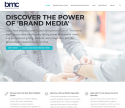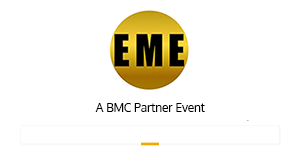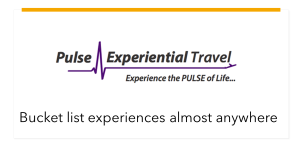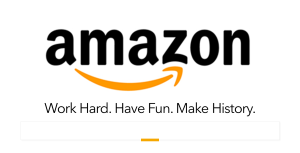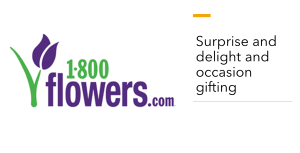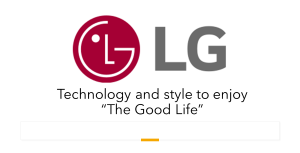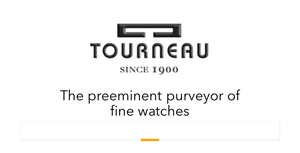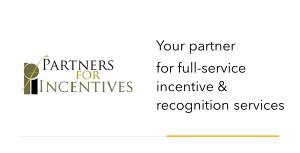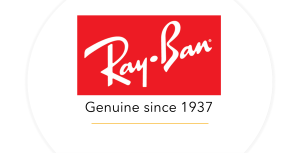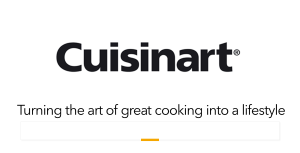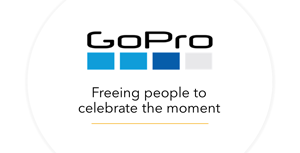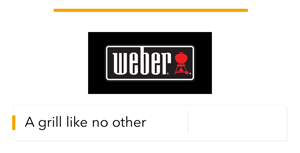News Analysis - Part II: The Reward Experience and the New Brand Media
A recent article on the Harvard Business School Working Knowledge website by Dina Gerdeman on the work of Harvard Business School Assistant Professor Ashley V. Whillans essentially sums up the conclusions of the research produced over the last 30 years since the original SITE Foundation was created. Author Whillans’ research, summed up in article, “Forget Cash. Here are Better Ways to Motivate Employees", is a must-read for anyone seeking to understand how to use non-cash rewards to engage people in business, as it demonstrates the need for a scientific, systematic approach and exposes the flaws of many current incentive, recognition and reward programs.
- When recruiting, emphasize benefits
- Cash works best for work that is measured quantitatively
- Reconsider the concept of performance incentives
- Consider thoughtful gifts instead of cash
- Give the gift of time—and other intangible perks
- Encourage employees to reward one another
- Make the recognition public
- Sometimes a simple thank you is enough.
By Bruce Bolger
Imagine an industry providing products and services for which organizations are estimated to spend $50 billion or more per year, for programs that often affects an organization’s most important customers, distribution partners, employees (sales and non-sales), vendors and communities, and that few people have ever heard of. Despite periodic public relations efforts by industry organizations, almost nothing is written about this field in the general business media or taught in any schools. As a result, many incentive, recognition and loyalty programs violate basic research findings related to proper program design or understanding of the impact of the reward experience. How could it be otherwise? It’s a field without even a commonly agreed upon name, although some are now trying to push the acronym IRR for the Incentive, Recognition and Rewards business. An industry without a clear name sums up the sorry state of awareness that continues to plague the business.
Perhaps nowhere is the impact of non-cash awards and brands more tangible than in the event-giving business. Whereas multiple screen placement and other variables can affect which brands and products redeem on an online catalog, the impact of proper brands and products selection is exposed at corporate event-gifting events such as those run by Cultivate, a leading service provider in the field. Tom Romine, President, says that the selection of which brands to offer at an event differs greatly with the organization and its audience, and that the failure to select the right brands would yield a visible flop. These same flops occur regularly on online sites without the same level of visible impact.
Confirming and expanding upon this anecdotal evidence about the impact of non-cash awards is Harvard Business School Assistant Professor Ashley Whillans, whose research findings are featured in the HBS Working Knowledge article “Forget Cash. Here Are Better Ways to Motivate Employees.” It sums up all the years of research that most organizations (and many in the IRR industry itself) do not know about related to the use of non-cash rewards. The article is based on a study Whillans co-wrote for Compensation & Benefits Review, “Winning the War for Talent: Modern Motivational Methods for Attracting and Retaining Employees.” Co-authors are Anais Thibault-Landry of the Université du Québec à Montréal and Allan Schweyer of the Incentive Research Foundation, and who is also Curriculum Chair for the Enterprise Engagement Alliance at EEA.tmlu.org.
Based on multiple research projects, Whillans takes a skeptical look at many current practices. “With unemployment at near historic lows in the United States, employers report that their single greatest challenge is recruiting and retaining talent. The answer for many companies is to throw money at the problem: Bonuses, incentive pay and out-of-cycle salary increases are often seen as motivators that will entice greater effort and loyalty out of workers.”
It turns out, the article states, that “using cash as a carrot isn’t always the best answer.” According to Whillans’ research, “More than 80% of American employees say they do not feel recognized or rewarded, despite the fact that U.S. companies are spending more than a fifth of their budgets on wages. What employees crave even more is to feel that their managers appreciate them and aren’t afraid to show it, not only in paycheck terms, but in other ways such as flexible work-at-home schedules, gift cards for pulling off impressive projects, or even just by saying ‘thank you’ for a job well done.”
“Cash matters in people’s lives, but it’s not all that matters,” the article quotes Whillans. “What really matters in the workplace is helping employees feel appreciated.”
Whillans believes “companies with strong recognition programs enjoy increased productivity, lower job turnover and greater return-on-investment than other companies in the same industries.” Despite the compelling benefits, she notes that most companies still don’t have formal recognition programs to support organizational values, goals and objectives.
The study provides concrete tips on how best to reward employees in ways that will bring them greater job satisfaction and motivate them to work harder.
When recruiting, emphasize benefits
A 2018 study by Whillans and her team that looked at more than 92,000 job ads found a direct correlation between the promotion of benefits and the rate of applications. Employers who provided details, such as generous family leave policies, received more applications than those that advertise higher pay. Adding softer rewards gives candidates the impression that the organization cares about a healthy work/life balance.
Cash works best for work that is measured quantitatively
While many studies show that cash rewards lead to increased sales, improved customer service and higher productivity, money is effective in complex and creative jobs in a knowledge-based society that can’t be so easily measured. “With most of today’s employees, you’re trying to help instill intrinsic motivation, so they feel motivated to put in more effort out of enjoyment for what they do and appreciation for their jobs, rather than feeling extrinsically motivated by cash alone.” If a company does use cash rewards, it should include a sincere personal note explaining the reason for the bonus, Whillans says. Giving cash alone, she asserts, can feel insincere or transactional to the recipient and may not be as motivational as management assumes. The cash award works best, she notes, when issued as a bonus check that is differentiated from paychecks.
Reconsider the concept of performance incentives
Rather than dangling rewards as carrots, Whillans suggests, what often works better is “to turn around the timing of the reward, handing it out immediately after an employee excels at a particular task, rather than dangling it beforehand.” This way the organization can emphasize the reason why the employee received the reward and use that process to encourage more such behaviors from the recipient and his or her colleagues.
Research, she admits, proves that financial incentives can increase effort and performance, but a downside occurs when the employee’s earnings are based solely on performance and they become obsessed with money rather than the quality of their work.
Consider thoughtful gifts instead of cash
Whillans argues that cash rewards don’t always produce the best results. A 2017 study of 600 salespeople found that when a company instituted an all-cash sales program in place of a mixed cash and prize reward program, sales effort dropped and led to a 4.36% decline in sales that cost the company millions in lost revenue.
People, she says, may prefer non-cash rewards because they often spend cash on necessities, which are less memorable and enjoyable than desirable prizes. It’s even better, Whillans says, if a gift feels personalized. A manager, she explains, could give a fitness-oriented employee a gift card to a store that sells workout clothes, while a baseball fan might appreciate tickets to a game of his or her favorite team.
Another benefit to prizes: workplace buzz. “People feel awkward talking about money, so they won’t talk about the $2,000 bonus they received. But if you reward someone with a nice dinner or trip, they will talk about it with their co-workers, and that can motivate everyone,” Whillans says. “Plus, that trip or dinner is more memorable and emotionally satisfying to them than just receiving cash, so it can act as a stronger motivator.”
Give the gift of time—and other intangible perks
According to the article, a Glassdoor survey of 115,000 employees conducted by Whillans and her team found that providing intangible benefits, like flexible work hours or the ability to choose assignments, led to greater satisfaction than cash rewards alone. “If you allow an employee to work at home, you help employees feel like you trust them to get their work done where they want to get it done,” she says. “That is enormously satisfying to them—and it motivates them to work even harder.”
Whillans cites research showing that employees who take time off feel less stress and experience higher levels of engagement, creativity and productivity. She is a big believer in the benefits of offering flexible work hours that enable employees to reduce the time wasted in traffic and policies allowing employees to book direct flights.
Encourage employees to reward one another
Whillans suggests that companies can build recognition into their business practices by creating peer-to-peer recognition programs that reward people for defined behaviors and which can be collected for non-cash rewards or other perquisites. These programs are inexpensive and
“build social connections in a workplace, which helps people feel more fulfilled at work.”
Make the recognition public
Whatever the award, consider giving them out in public, and always include some form of certificate, Whillans says. “People are more likely to contribute posts on Wikipedia when they receive a public certificate of recognition,” she explains. “If you can create a social experience around the reward, it becomes more eventful and something an employee will remember.”
Sometimes a simple thank you is enough
A heartfelt “thank you” from a manager goes a long way to helping employees feel as if their contributions matter. “It’s a tactic that’s wildly effective, yet significantly underused in the workplace,” Whillans notes. ”You don’t have to express gratitude only for things that help the company turn a profit. It could be as simple as saying ‘thank you’ for an email that allowed a project to go more smoothly.”
The bottom line of Whillans work, and the fact that it appeared in a Harvard Business School publication, demonstrates that the field of rewards and recognition has the potential to enter a new era in which it is viewed as a communications and storytelling medium as important as any other form of advertising, except that it is almost always targeted at an organization’s most important stakeholders, whether they be sales or non-sales employees, customers, distribution partners, communities, etc.
Featured Advertiser
Harco Incentives
A full-service master fulfillment company.
“The Business of Thank You”
Ed Hearne
(201) 894-8941, ext. 150
Master the Principles of Enterprise Engagement to Achieve Organizational Goals and Enhance Your Career
- Profit from a new systematic approach to engagement to enhance your organization’s brand equity; increase sales, productivity, quality, innovation, and safety, and reduce risks.
- Achieve ISO 10018 Quality People Management Certification to demonstrate your organization’s strategic commitment to people to your customers, employees, distribution partners, vendors, communities, investors, and regulators.
Live Education: Enterprise Engagement in Action Conference at Engagement World, April 3, 2019, in San Francisco, in conjunction with the Selling Power Sales 3.0 Conference. Learn about the economics, framework, and implementation process for an ISO certifiable approach to achieving organizational objectives by strategically fostering the proactive involvement of all stakeholders. Learn more and register now. 

The first and most comprehensive book on Enterprise Engagement and the new ISO 9001 and ISO 10018 quality people management standards.
Online: The Enterprise Engagement Academy at EEA.tmlu.org, providing the only formal training on Enterprise Engagement and the new ISO 9001 and ISO 10018 quality people management standards. Provides preparation for professionals to support organizations seeking ISO 10018 employer or solution provider certification, as well as elective courses on Trade Show Engagement, Rewards and Recognition, Government, and other topics.
Plus: 10-minute short course: click here for a 10-minute introduction to Enterprise Engagement and ISO standards on Coggno.com.
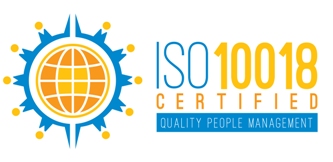 Services: The International Center for Enterprise Engagement at TheICEE.org, offering: ISO 10018 certification for employers, solution providers, and Enterprise Engagement technology platforms; Human Resources and Human Capital audits for organizations seeking to benchmark their practices and related Advisory services for the hospitality field.
Services: The International Center for Enterprise Engagement at TheICEE.org, offering: ISO 10018 certification for employers, solution providers, and Enterprise Engagement technology platforms; Human Resources and Human Capital audits for organizations seeking to benchmark their practices and related Advisory services for the hospitality field.
The Engagement Agency at EngagementAgency.net, offering: complete support services for employers, solution providers, and technology firms seeking to profit from formal engagement practices for themselves or their clients, including Brand and Capability audits for solution providers to make sure their products and services are up to date.
C-Suite Advisory Service—Education of boards, investors, and C-suite executives on the economics, framework, and implementation processes of Enterprise Engagement.
Speakers Bureau—Select the right speaker on any aspect of engagement for your next event.
Mergers and Acquisitions. The Engagement Agency’s Mergers and Acquisition group is aware of multiple companies seeking to purchase firms in the engagement field. Contact Michael Mazer in confidence if your company is potentially for sale at 303-320-3777.
Mergers and Acquisitions. The Engagement Agency’s Mergers and Acquisition group is aware of multiple companies seeking to purchase firms in the engagement field. Contact Michael Mazer in confidence if your company is potentially for sale at 303-320-3777.
Enterprise Engagement Benchmark Tools: The Enterprise Engagement Alliance offers three tools to help organizations profit from Engagement. Click here to access the tools.
• ROI of Engagement Calculator. Use this tool to determine the potential return-on-investment of an engagement strategy.
• EE Benchmark Indicator. Confidentially benchmark your organization’s Enterprise Engagement practices against organizations and best practices.
• Compare Your Company’s Level of Engagement. Quickly compare your organization’s level of engagement to those of others based on the same criteria as the EEA’s Engaged Company Stock Index.
• Gauge Your Personal Level of Engagement. This survey, donated by Horsepower, enables individuals to gauge their own personal levels of engagement.
For more information, contact Bruce Bolger at Bolger@TheEEA.org, 914-591-7600, ext. 230.




